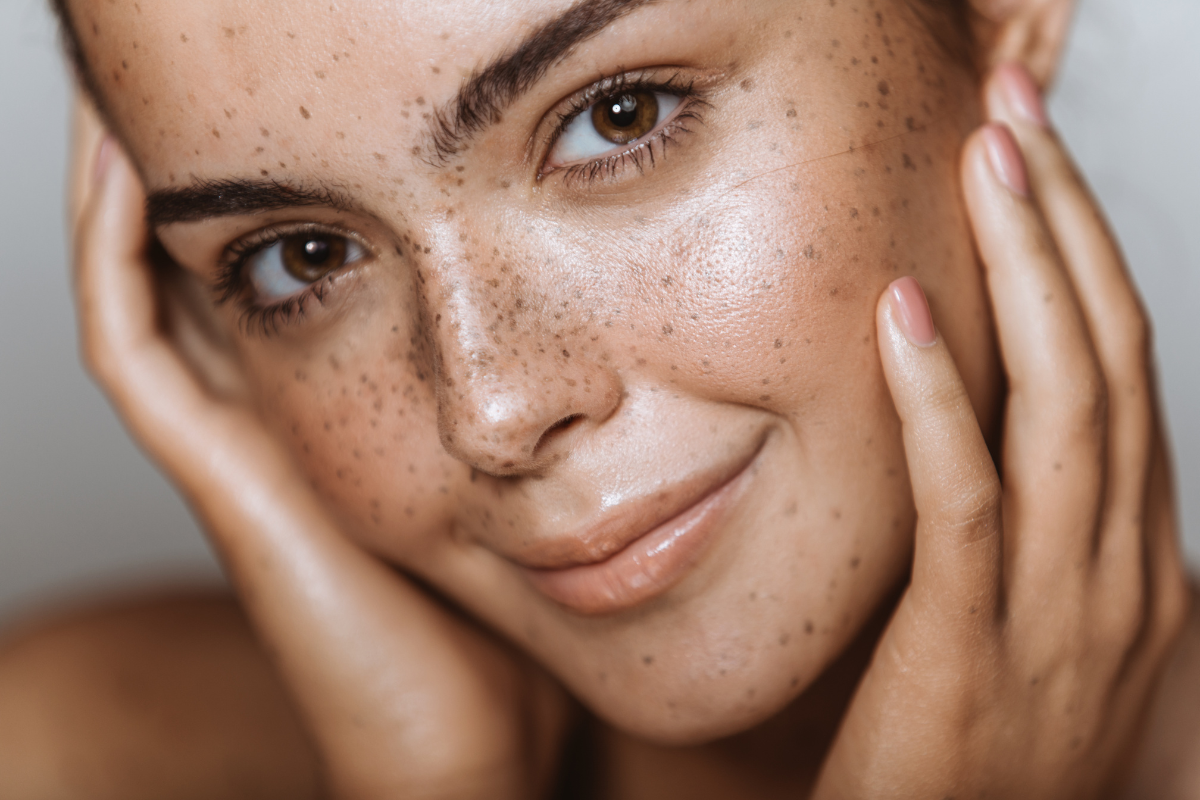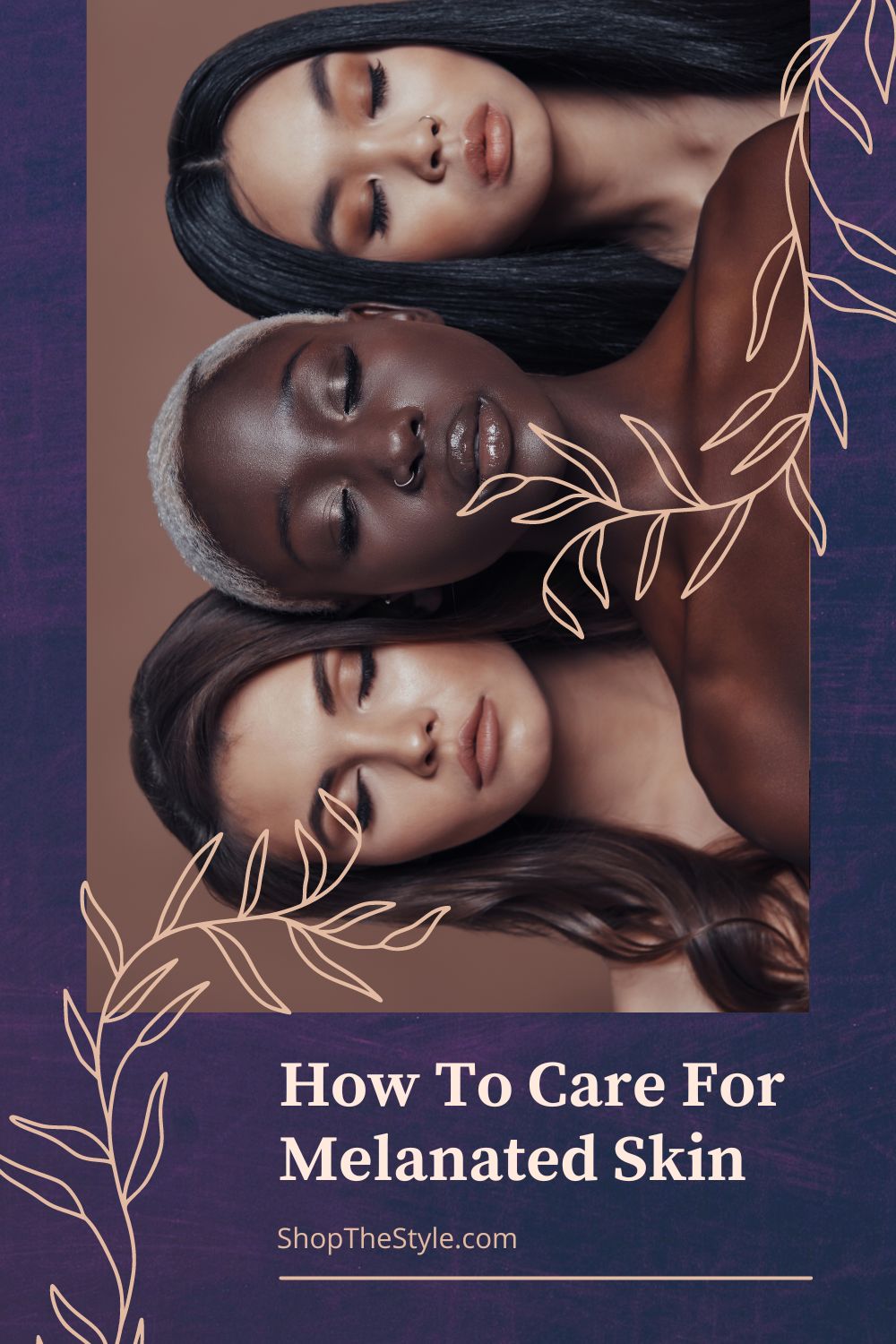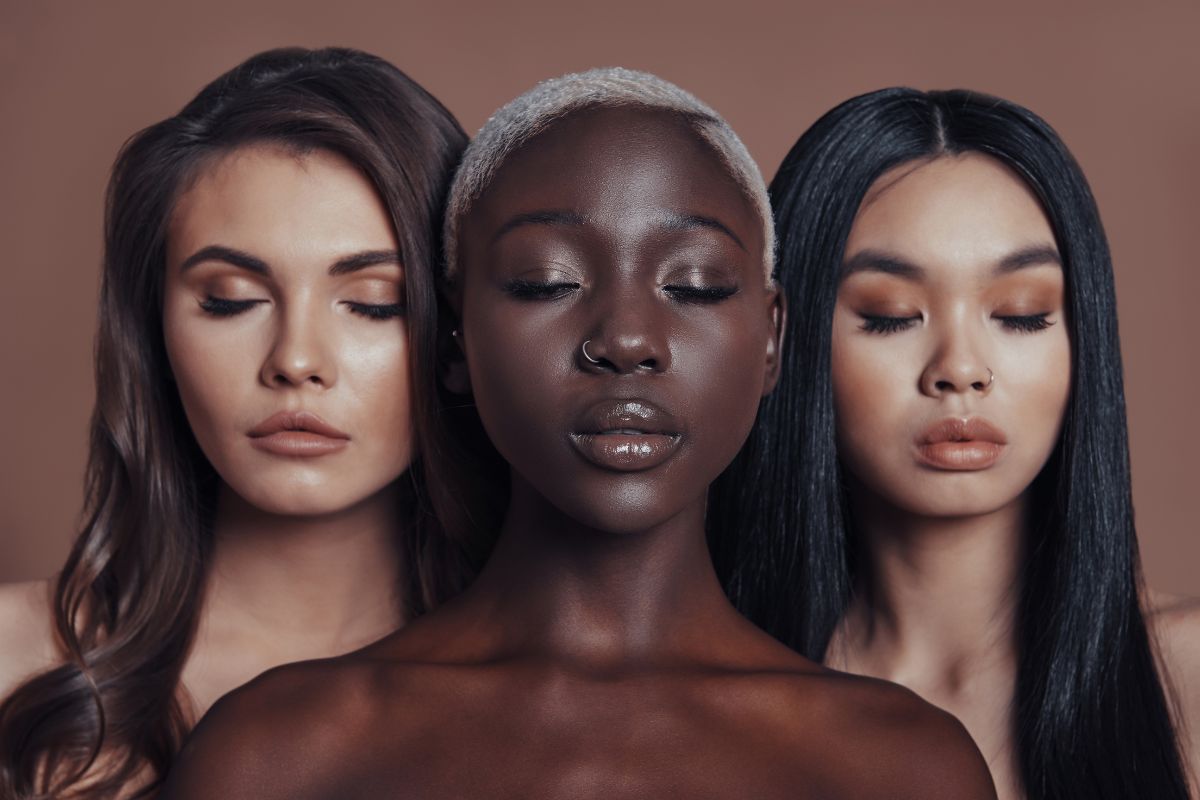Having melanated skin comes with a unique set of requirements and considerations when it comes to taking care of your skin. The way you care for your melanated skin should be tailored to your individual needs, and there are some important tips and tricks that everyone should know about when it comes to taking care of their melanated skin. Let’s explore how to take care of this type of skin the right way.
Contents
What is Melanated Skin?
First off, what is melanated skin? In the simplest terms, melanin is the pigment that gives our skin color, and those with darker complexions have higher levels of melanin in their skin. This means that they must take special care when caring for their skin as certain ingredients can have adverse effects on people with higher levels of melanin.
Melanated skin is a type of skin that contains more melanin than other types. It is often found in people of color but can also appear in lighter-skinned individuals who carry two copies of the gene responsible for melanin production. Because melanin helps protect the skin from harmful UV rays, individuals with this type of skin are particularly susceptible to sunburns and premature aging if they do not practice proper sun protection.
Best Ingredients To Avoid
Those with melanated skin should look out for certain ingredients in skincare products that can be irritating or drying on their complexion. Some examples include alcohols like ethanol and SD alcohol 40; artificial fragrances; retinoids; benzoyl peroxide; menthol; camphor; mineral oil; lanolin; and parabens. These ingredients may be too harsh or irritating for those with this type of delicate complexion, so avoiding them altogether is best when possible.
The best ingredients to avoid if you have dark skin include hydroquinone, which can lead to permanent discoloration; fragrances, which can cause allergic reactions; and harsh exfoliants like apricot kernels or walnut shells, which can cause irritation. Additionally, you should look out for any ingredient that has been linked to causing further pigmentation issues such as licorice extract or kojic acid.
Is Hydroquinone Safe For Melanted Skin?
Hydroquinone has long been used as an ingredient in lightening creams for those suffering from hyperpigmentation or melasma due to its ability to inhibit tyrosinase production within the cells that cause pigmentation issues. However, there has been some debate over its safety due to its potential side effects such as redness and irritation when used over long periods of time or at high concentrations. For this reason it’s important that those considering using hydroquinone seek professional advice first before making any decisions about their skincare routine.
Does Melanated Skin Still Need SPF?
Yes! Even though people with darker complexions may not be as prone to sunburns, they still need sunscreen because UV rays can still cause damage even without burning the skin. Sunscreen will help protect against premature aging caused by sun exposure and potential long-term harm from overexposure to UV rays. Make sure you use a broad-spectrum sunscreen with an SPF of at least 30 every day! The best Korean sunscreen for oily skin works well on melanated skin.
Even though melanated skin has natural sunscreen properties built-in, it’s still important to apply sunscreen every day (even on cloudy days!) in order to shield your complexion from further damage caused by UVA/UVB rays which can cause premature aging, dark spots or even worse – cancer! Look out for products containing zinc oxide or titanium dioxide as they provide broad-spectrum protection without irritating sensitive complexions like ours!
Common Issues like Hyperpigmentation
When it comes to common issues such as hyperpigmentation—which occurs when excess amounts of melanin are produced—there are certain ingredients you should look out for when searching for the right product. Ingredients like lactic acid and glycolic acid help safely fade away dark spots without damaging healthy cells or increasing the production of more pigment in the area. If these milder acids do not work for you, there are products on the market containing stronger agents such as retinoids or Vitamin C that can also be used in small amounts over time in order to reduce hyperpigmentation safely and effectively.

There are several active ingredients commonly found in products designed specifically for treating hyperpigmentation including kojic acid, arbutin, azelaic acid, vitamin C derivatives (ascorbic acid), niacinamide, mulberry extract and licorice extract just to name a few! These active ingredients help fade discoloration by inhibiting tyrosinase production within our cells which helps reduce existing pigmented areas while preventing further discoloration from occurring as well! Be sure to check labels carefully since some products contain only one active ingredient while others contain multiple active ingredients combined together – either option will still be effective but depending on how severe your case of hyperpigmentation may be you might need something stronger than what’s available over the counter! Consult with your dermatologist if you have any questions about which product would be best suited for you!
Care During Chemical Peels
It’s important that those with darker complexions take extra precautions before undergoing chemical peels due to the potential scarring associated with them. You should always consult a professional who specializes in treating darker skins before opting into any kind of chemical peel treatment so they can advise on what would work best for you given your individual needs and circumstances.
Although chemical peels (which are one of the top cosmetic procedures in the US) are an effective way of removing dead layer cells from our face and body leaving us with brighter smoother looking complexions it’s important we take certain precautions prior too having one done such as researching the desired peel beforehand so we know exactly what we’re getting into. Many salons offer different levels of intensity depending on how deep you want your peel go so make sure you feel comfortable with your choice before committing.
Also make sure whoever administering your peel understands our unique needs such as how quickly our skins regenerate compared white counterparts since we tend heal faster meaning deeper peels could lead too scarring if not done properly so always communicate openly with your technician prior too receiving treatment.
Lastly, always wear sunscreen afterwards regardless if you get a light medium or deep peel since intense exposure sun can lead too unwanted pigmentation post treatment!
Melanated Skin FAQ
Melanated Skin is a unique type of skin that requires specialized care and attention when it comes to common skin concerns like hyperpigmentation.
How do you treat melanated skin?
The best way to treat melanated skin is to use products that are specifically designed for melanated skin. These products often contain active ingredients such as kojic acid, arbutin, azelaic acid, vitamin C derivatives (ascorbic acid), niacinamide, mulberry extract, and licorice extract. These ingredients help to fade discoloration by inhibiting tyrosinase production, which helps to reduce existing pigmented areas while preventing further discoloration from occurring. It is important to read products labels carefully, as some products only contain one active ingredient and others have multiple active ingredients combined together.
What are melanated skin tones?
Melanated skin tones refer to skin that has more melanin pigmentation than most other skin color names. Melanin is a natural pigment that gives skin its color and melanated skin tones generally range from olive to dark brown. Darker skin can be more prone to hyperpigmentation and discoloration, so it’s important to use products that are specifically designed for this type of skin in order to minimize the appearance of discoloration. Darker skin tones can also be more prone to sun damage, so it is important to wear sunscreen with an SPF of 30 or higher.
Should melanated skin get chemical peels?
Chemical peels can be beneficial for melanated skin tones, but it is important to consult a professional before undergoing any kind of chemical peel treatment. Melanated skin can be more prone to scarring, so it is important to make sure that the technician understands melanated skin’s unique needs before proceeding with a chemical peel. It is also important to wear sunscreen every day following a chemical peel in order to protect dark skin from sun damage.
Is cocoa butter good for melanated skin?
Yes, cocoa butter is a great choice for dark skin! Cocoa butter helps to protect dark skin from sun damage and also helps to keep dark skin hydrated. Cocoa butter is rich in antioxidants that help to protect skin against environmental stressors, and the natural oils in cocoa butter help to reduce inflammation. Cocoa butter is also great for reducing the appearance of scars, so it’s a great choice.
What is the best moisturizer for melanated skin?
A good moisturizer for melanated skin should contain ingredients such as hyaluronic acid, shea butter, and natural oils. These ingredients help to keep skin hydrated and are also great for reducing inflammation.
Is glycolic acid good for melanated skin?
Yes, glycolic acid is a great choice for melanated skin. Glycolic acid helps to reduce the appearance of discoloration, while also helping skin to look brighter and more even toned. It is important to use glycolic acid in moderation, as dark skin can be more prone to irritation. Always make sure to do a patch test first before using any new product and always wear sunscreen with an SPF of 30 or higher to protect melanated skin from sun damage.
Is salicylic acid good for melanated skin?
Yes, salicylic acid can be beneficial for melanated skin. Salicylic acid helps to reduce acne breakouts and can also help to reduce the appearance of discoloration. However, melanated skin is more prone to irritation and sensitivity, so it is important to use salicylic acid in moderation.
Is Vitamin C good for melanated skin?
Yes, vitamin C is great for melanated skin! Vitamin C helps to reduce discoloration and hyperpigmentation while also helping melanated skin to look brighter and more even toned. Vitamin C also helps this type of skin fight environmental stressors and free radicals that can lead to premature aging. It is important to use a product that contains Vitamin C in combination with other active ingredients such as niacinamide or kojic acid in order to maximize skin’s benefits.
What oils are good for melanated skin?
Melanated skin can benefit from the use of natural oils such as jojoba oil, almond oil, and coconut oil. These natural oils contain fatty acids that help dark skin to stay hydrated and reduce inflammation. They also provide the skin with antioxidants that can help to protect skin from free radicals and environmental stressors that can lead to premature aging.
What are melanated skin folds?
Melanated skin folds are a type of hyperpigmentation that is typically seen in melanated skin. Melanated skin folds appear as dark patches of discoloration in darker skin and can be caused by a variety of factors such as genetics, sun exposure, or the use of chemical products. Melanated skin folds can be treated with skin lightening products, chemical peels, or laser treatments – Check out these NIRA Pro Laser Results. However, it is important to speak with a dermatologist before attempting any type of skin treatment.

Melanated Skin Conclusion
Taking proper care of your dark skin doesn’t have to be complicated; just keep in mind what works best for your individual needs! Remembering simple things like making sure you use broad-spectrum sunscreen every day, avoiding harsh ingredients like hydroquinone, looking out for common issues like hyperpigmentation when searching for products (and using safe alternative ingredients), and being extra cautious before undergoing chemical peels will go a long way towards helping protect your unique complexion while keeping it looking beautiful all year round!







